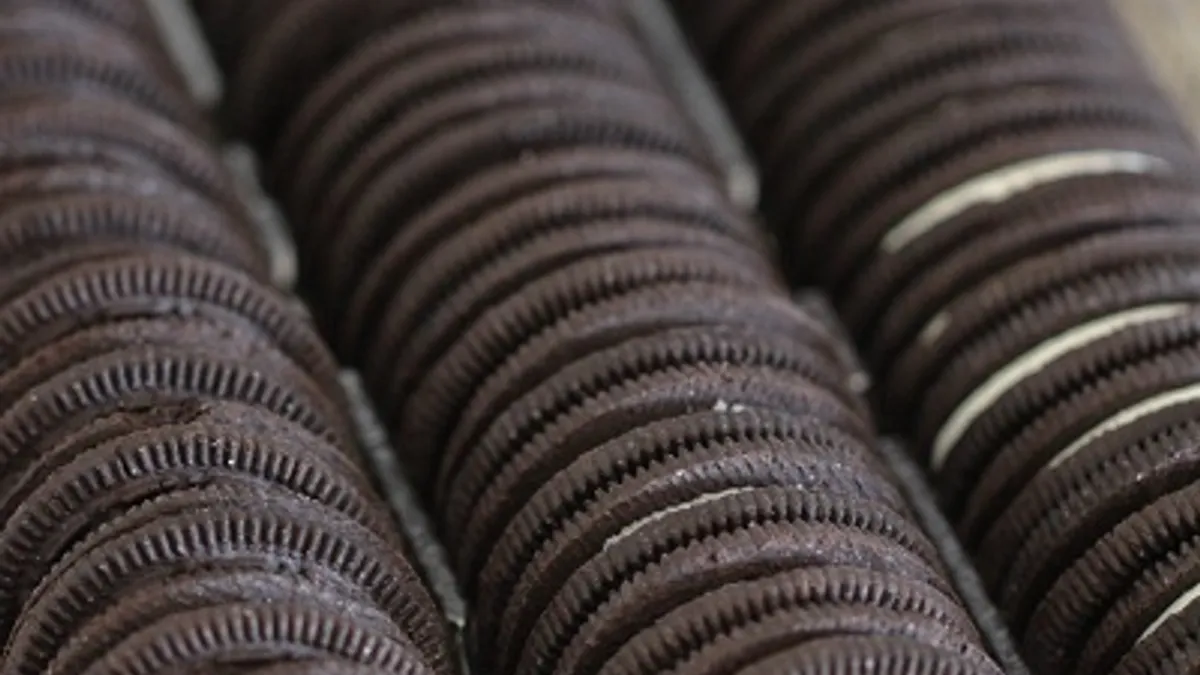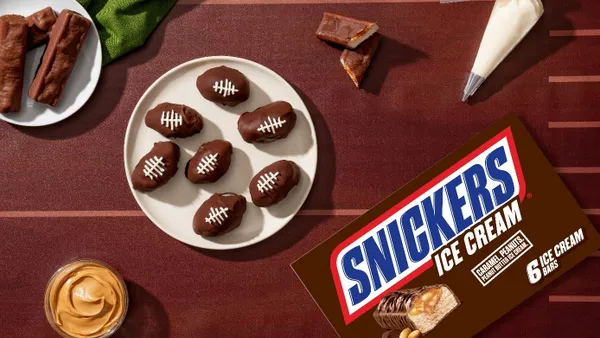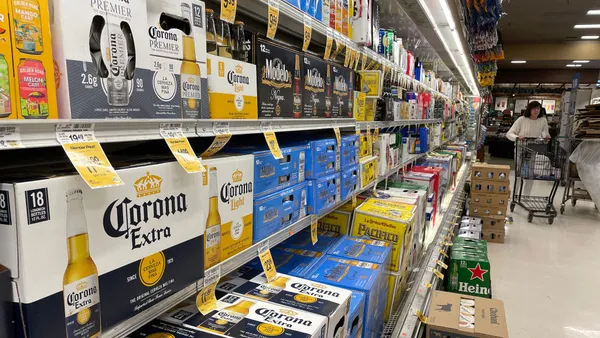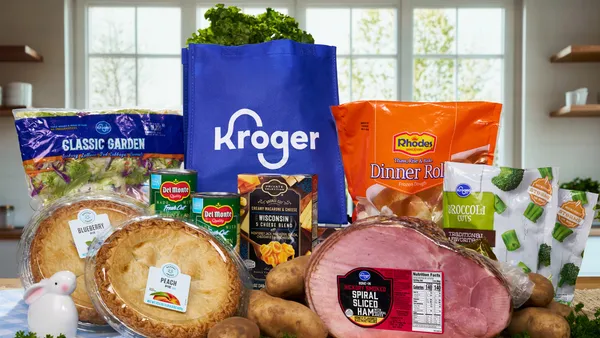Dive Brief:
- Leaf Brands, the owner of Hydrox Cookies, has filed a complaint with the Federal Trade Commission that accuses Oreo baker Mondelez of making its product difficult to find in grocery stores, according to Gizmodo. According to Leaf Brands, a buyer from one of the largest store chains in the U.S. warned the company: "Mondelez is going to hide your cookies all over our stores to make sure you don’t get any sales, in hopes of being discontinued,” the website reported.
- As evidence, Hydrox posted photos on Facebook of Hydrox Cookies that were hidden from shoppers' views by other products on grocery store shelves across the country. The brand believes that Mondelez's direct-to-store distribution model, which has employees of the Oreo maker restock its products instead of retailers, has given delivery personnel the opportunity to move the rival sandwich cookie to lesser spots on the shelf.
- The FTC has asked for additional information following the complaint, but Mondelez has stated that it is "confident this accusation has no merit."
Dive Insight:
Hydrox's accusation is the latest chapter of a longstanding feud between the look-alike sandwich cookies. The brands have been competing for market dominance since Nabisco launched Oreo in 1912, just four years after Hydrox — then owned by Sunshine Biscuits — staked its claim in the packaged sweet space.
But the battle has been far from evenly matched. Hydrox has struggled to break into the mainstream for the past few decades — former owner Kellogg tried to rebrand the product as "Droxies" to give the cookies a fresh start, but pulled the cookies from the market in 2003 after disappointing results. In 2015, Leaf Brands relaunched the original Hydrox cookies, but this change of hands has done little to slow down Mondelez's success.
Oreo still leads the U.S. cookie category with sales of $661.2 million, with its Double Stuffed and Oreo Thins product varieties coming in at No. 4 ($260.8 million) and No. 6 ($172 million), respectively. Despite Hydrox's 40% growth last year and the brand's decision to reformulate the product so it's free of artificial colors, flavors and GMOs, the brand is still struggling in Mondelez's dust.
Given the size of Oreo's lead, it seems pretty far-fetched that Mondelez would instruct its delivery personnel to mess with Hydrox's store placement. Why risk a crackdown by the FTC when its brand is already the reigning sandwich cookie in both mind and market share? Perhaps the bigger question at play here, however, is whether or not this kind of sabotage is possible. Grocers still have oversight over what's in their aisles, after all.
Direct-to-store delivery models are nothing new in the food space, and give manufacturers the chance to ensure that they get the shelf space they pay for and that their products look as eye-catching as possible. In the past few years especially, these last-minute touches can make or break food and beverage products — especially for newcomers or underdogs like Hydrox.
Hydrox does not use a direct-to-store distribution model, instead allowing grocery store employees to restock its products from the supermarket warehouse. This hands-off approach could be part of the problem as well, as it's possible that the less-than-desirable placement of Hydrox cookies could be the result of grocery employee mishandling.
Regardless of whether it was foul play or negligence that landed Hydrox cookies in the cheap seats, this situation is reflective of the crowded and cutthroat state of the food industry. It also points to the fact that in order to be competitive in today's retail environment, brands need to pour more marketing spend into packaging innovations that will help their products stand out on the shelf, whether it be kiosks outfitted with AR or packaging designed to shine on Instagram.
But high-end strategies are not needed to capture consumer attention. Simpler solutions can also be effective if manufacturers take the time to dig into their customers' interests, do their homework on the shelf experience their competitors are offering and launch an engaging alternative. How the FTC chooses to handle this situation — and whether or not Mondelez is actually at fault — remains to be seen, but perhaps Hydrox's struggles can serve as a cautionary tale for the broader industry: prioritize your shelf space and in-store messaging, or risk fading into the background.













